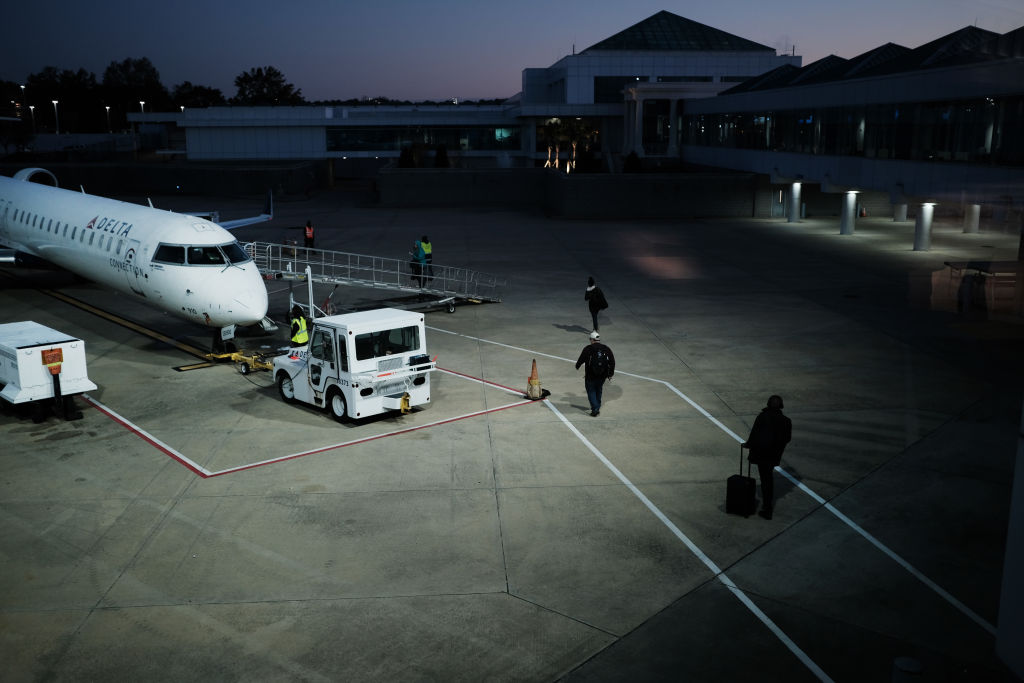No fly zone: As coronavirus fears grow, airlines must brace for the worst

One of last month’s more outlandish news stories was the report that the coronavirus outbreak had caused an upsurge in private jet inquiries.
More wealthy travellers than ever, it seems, are willing to pay thousands of pounds an hour for a plane unto themselves, in an attempt to dodge the risk of getting infected.
The assessment given by Richard Lewis, the US president of Insignia Group, which organises travel for rich clients, is stark: “They’re not willing to share the cabin with other people.”
How much will coronavirus cost the airline industry?
For the rest of the aviation industry, it is a different picture. Conservative estimates, such as that of the International Air Transport Association (IATA), have global airlines losing nearly $30bn in revenue this year (and that was back in mid-February).
Some commentators think the figure could be as high as $100bn (£78bn). For context, the 2010 Icelandic volcano eruption, which halted air travel across Europe for several days, cost about $1.7bn.
The outbreak of severe acute respiratory syndrome in 2003 — better known by its SARS acronym — cost $7bn.
Coronavirus is a multi-faceted problem for airlines. As existing flights are cancelled, operators are forced to forego cash from future ticket sales, and pay customers back in refunds.
And as fewer people want to fly, carriers are being forced to discount tickets to stimulate demand. Low-cost Chinese firm Spring Airlines, for example, was selling a three-hour flight for the equivalent of $4 last week.
With the coronavirus arriving on new shores by the day, it also looks like a sign of things to come for European operators.
Airlines forced to cut flights
On Friday, German flag carrier Lufthansa pared back the number of short-haul flights it was running by a quarter. British Airways, meanwhile, refused to make its usual prediction for the year’s trading as it reported its half-year financial results.
“It’s a rapidly changing situation,” Willie Walsh, chief executive of parent company IAG, told reporters on Friday. “I wouldn’t call it unprecedented. We have seen other challenges for the industry.”

Walsh’s downplaying of the virus’ impact could be down to the fact that, even at the best of times, travel companies are especially vulnerable to economic headwinds.
In 2017, Brexit uncertainty, a weak pound, and an increase in terrorism in the Middle East and Europe coalesced to bring about the demise of UK airline Monarch. Thomas Cook’s £1.3bn debt pile, which pushed it into liquidation in September, was in part the result of a similar cocktail.
Nevertheless, the latest setback could be disastrous for the industry at large — particularly if infections continue to multiply into the summer holiday season, when firms make the lion’s share of their profit.
Could Covid-19 impact summer holidays?
“The question is how long this will last and how much damage will be done,” says Neil Wilson, analyst at Markets.com.
“You could see a complete wipe-out to the European summer season if the situation deteriorates in Italy and we for instance see a similar surge in cases across France. We can already see non-essential business travel being hit as companies take action to protect employees — families will start to do the same if we see a broad spread across Europe.”
For IAG, which also owns Iberia, Aer Lingus and Vueling, a period of huge disruption may vindicate its holding company model, established nine years ago when BA started making acquisitions in a bid to future-proof its finances.
For others, it could spell the end of the line. Already, Air Italy has ceased operations, with plummeting demand driven by the outbreak proving the final nail in the coffin, after a year of struggles caused by the grounding of Boeing’s 737 Max jet.
“It is impossible to really say how difficult trading could become for the airlines, as IAG’s statement suggested last week,” says AJ Bell analyst Russ Mould.
“The more people elect to stay at home, cancel holidays or business trips, the tougher it is going to get. This will pressure those airlines that have plenty of debt and weak balance sheets, while those with stronger finances will be better placed to withstand a lengthy downturn in trading.”
Airline stocks vulnerable to coronavirus
This has translated into a febrile situation on the stock market. Easyjet shares fell 15 per cent in value last week, IAG fell 18 per cent and Ryanair took a 20 per cent knock.
Norwegian Air — which has been battling tooth and nail for survival for more than 18 months in the face of a mounting debt pile — tumbled an eye-watering 43 per cent, as investors feared for its future.
Meanwhile, for those trying to bypass the situation entirely by chartering a private jet, there is a twist in the tail.
There are simply not enough planes to go around. It means that as the geographical spread of the coronavirus grows, fears intensify, and the aviation industry continues haemorrhaging cash over the coming weeks, one thing is clear: when it comes to travelling during an outbreak, we are all in it together.